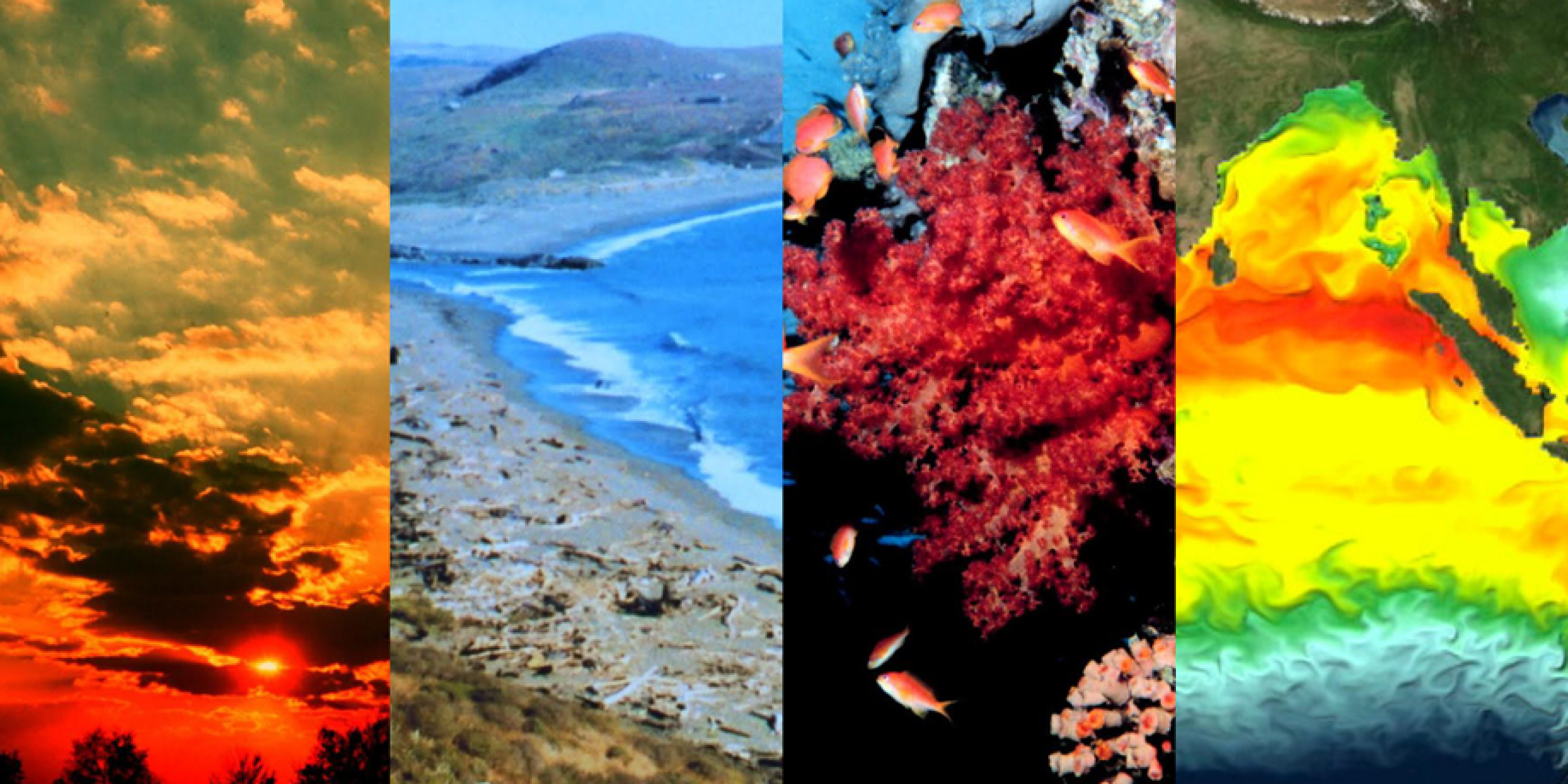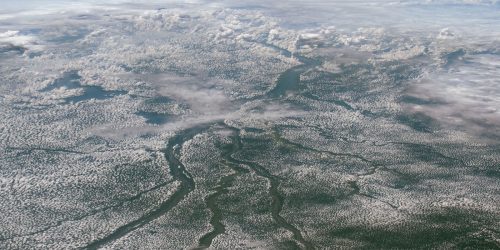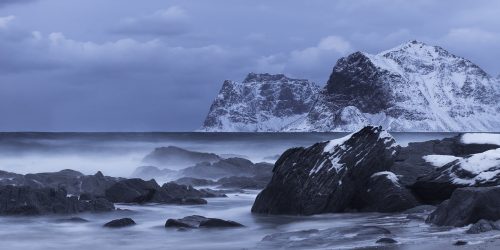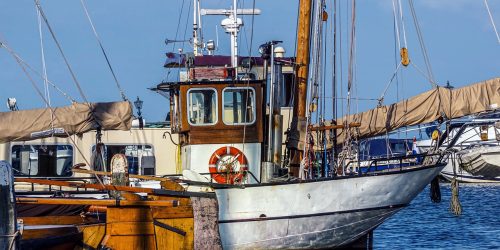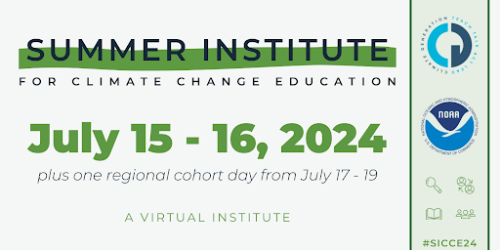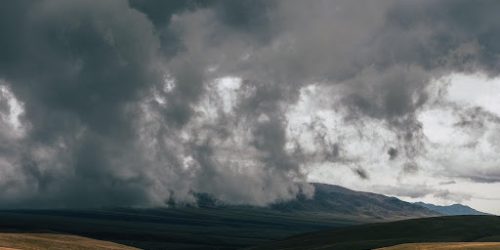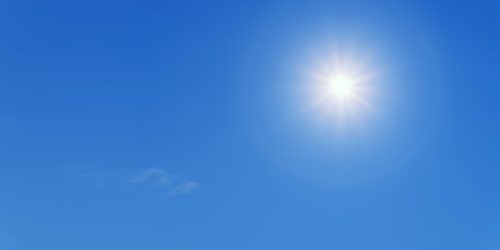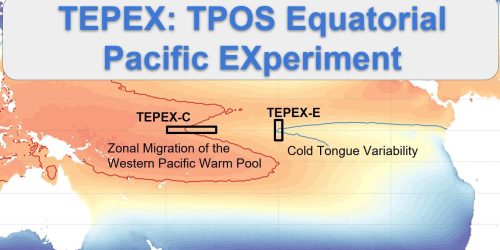Important Information and Updates
Due to unforeseen budget constraints as well as compounding budget cuts over the past two years, AC4 management has made the tough decision to cancel the “AC4: Understanding urban air in a changing climate” competition. Other than time sensitive engagement in the USOS field campaign, the AC4 Program expects to continue to focus on the changing urban atmosphere, especially in the analysis of data that has been collected so far, in the future.
NOFO at a Glance
General Information
This FY24 NOFO is being executed through CPO’s Earth System Science and Modeling (ESSM) Division. Through this announcement, CPO is seeking applications for six individual competitions in FY24. Several of these competitions are relevant to the suite of urgent climate-driven societal challenges and risks faced by our Nation that CPO aims to address. These include water availability and quality, marine and freshwater ecosystems, coastal changes and inundation, cascading hazards from drought and extreme heat like wildfire, and air quality issues, and climate mitigation (more information about CPO Societal Challenges and Risks framework can be found here: https://www.cpo.noaa.gov/Initiatives/Climate-Risk-Areas-Initiative). Prior to submitting applications, investigators are highly encouraged to learn more about CPO and its programs, as well as specific program priorities for FY24. In addition, interactions, partnerships, or collaborations with NOAA OAR Laboratories and Cooperative Institutes are encouraged.
Program FY24 priorities, along with the names and contact information for each Competition Manager, is provided in information sheets below.
In FY24, approximately $9 million will be available for approximately 90 new awards pending budget appropriations. It is anticipated that most awards will be at a funding level between $50,000 and $300,000 per year, unless otherwise noted below. Federal funding for FY25 may be used to fund awards submitted under this Notice of Funding Opportunity. Current or previous grantees are eligible to apply for a new award that builds on, but does not replicate, activities covered in existing or previous awards. Current grantees should not apply for supplementary funding through this announcement.
CPO’s grant programs manage a competitive process through a Notice of Federal Funding Opportunity (NOFO) announcement to make awards supporting high-quality research conducted across the United States and internationally on the most urgent climate science questions. While each program area has its own focus, together they advance understanding of Earth’s climate system through interdisciplinary, integrated scientific research, and leverage the resulting knowledge, data, and systems to enhance society’s ability to plan and respond to climate variability and climate change. CPO programs play a critical role in advancing science and informing decisions for climate adaptation, resilience, and mitigation as part of NOAA and the U.S. Global Change Research Program. CPO research/science programs and activities meet urgent climate challenges, and incubate innovative advancements in Earth system and social sciences; support world-class assessment reports, including the National Climate Assessment; enhance and expand NOAA’s capabilities for integrated information systems for drought, heat and floods to deliver timely science-based information that can reduce the impacts and costs of these climate-driven challenges; and educate and grow the next generation of experts in support of NOAA’s climate mission.
Links to Full NOFO and Grants.gov Listing
Important Dates/Deadlines
Letters of Intent
Letters of intent (LOIs) for the CVP and MAPP competitions are due on 11:59 p.m. Eastern Time on August 18th, 2023 via a Google Form specified in the competition information sheets.
LOIs for the AC4 competition should be received by 11:59 p.m. Eastern Time on September 11th, 2023 via the Google Form specified in the information sheet.
A response to the LOI from the Competition Manager (e-mail or letter) will be sent to the investigator within four weeks after the LOI due date encouraging or discouraging a full application based on its relevance to the targeted competition.
Full Applications
Full applications for all competitions must be received by 11:59 p.m. Eastern Time, November 17th, 2023.
Applications received after this time will not be considered for funding.
Applications must be submitted via http://www.grants.gov. For applications submitted through grants.gov, the basis for determining timeliness is the receipt notice issued bycgrants.gov, which includes the date and time received.
Applicants without internet access
For applicants without internet access, please contact the CPO Grants Manager Diane Brown by mail at NOAA Climate Program Office (R/CP1), SSMC3, Room 12734, 1315 East-West Highway, Silver Spring, MD 20910 to obtain an application package.
Please allow two weeks after receipt for a response. Hard copy submissions will be date and time stamped when they are received in the Climate Program Office.
Emailed or faxed copies of applications will not be accepted.
For Federal Investigators
Federal lead investigators who wish to apply to this Announcement of Opportunity must prepare a proposal according to the NOFO guidelines and submit the proposal to the program manager directly, instead of to Grants.gov. Federal co-investigators must submit a proposal identical to the proposal lead’s but with personalized budget information.
Letters of Intent for Federal investigators should be received by the Competition Manager via the Google Form specified in the competition information sheet by 11:59 p.m. Eastern Time on August 18th, 2023, except for the AC4 competition, which should be received via the Google Form linked in the competition information sheet by 11:59 p.m. Eastern Time on September 11th, 2023.
Full applications for all Competitions must be received by 11:59 p.m. Eastern Time on November 17th, 2023.
Where to Submit
Application packages:
Visit Grants.gov and click on Apply for Grants. You may also directly view the Grants.gov listing here.
Notice of Funding Opportunity Number:
Applicants without Internet access:
Please send mail to:
Diane Brown
CPO Grants Manager
NOAA Climate Program Office (R/CP1), SSMC3, Room 12734
1315 East-West Highway
Silver Spring, MD 20910
Please allow two weeks after receipt for a response.
Questions/Who to Contact
General NOFO questions
Diane Brown, CPO Grants Manager
Please send mail to:
Diane Brown
CPO Grants Manager
NOAA Climate Program Office (R/CP1), SSMC3, Room 12734
1315 East-West Highway
Silver Spring, MD 20910
Please allow up to two weeks after receipt for a response.
Competition Specific Questions
Please contact the corresponding competition manager, as listed in the Information Sheet for that competition.
Additional Links
Webinars/Events
List Of Competitions
NOAA is accepting individual applications for 6 competitions.
AC4 – Understanding Urban Air in a Changing Climate
Due to unforeseen budget constraints as well as compounding budget cuts over the past two years, AC4 management has made the tough decision to cancel the “AC4: Understanding urban air in a changing climate” competition. Other than time sensitive engagement in the USOS field campaign, the AC4 Program expects to continue to focus on the changing urban atmosphere, especially in the analysis of data that has been collected so far, in the future.
In order to continue improving our understanding of urban air composition and to inform mitigation strategies such as in the case of Salt Lake City’s high summer ozone problem, the AC4 program invites proposals for data analysis focused on one or more of the following topics:
- Emission sources and atmospheric processes contributing to urban air quality challenges in Salt Lake City and other urban areas
- Influence of NH3 on urban air quality
- Regional modeling that improve urban scale processes
- Urban monitoring collaboration with local communities with increased risk of the health impacts due to poor air quality on prototyping urban monitoring
CVP – Advancing Understanding of Ocean Variability and Change in Support of NOAA’s Climate Ecosystems Fisheries Initiative
In FY24 CVP is soliciting coupled-or ocean-model process studies linked with observational data analysis to better understand physical and biogeochemical ocean processes for improved modeling and observing. Investments will support the science needs of NOAA Fisheries and advance the research foundation for NOAA’s CEFI. CVP program is interested in fostering research across all regions: Northwest Atlantic (NWA; Caribbean to southern edge of the Labrador), Northeast Pacific (Baja through the Bering Sea), Great Lakes, Pacific Islands region (Hawaiian Islands and potentially outlying regions relevant to NOAA management responsibilities), Arctic Ocean.
CVP – Advancing Understanding of Multi-year to Decadal Climate Variability and Predictability for US Climate Prediction
In FY24, CVP is interested in data analysis and/or coupled-modeling studies focused on the process-level understanding of the role of the ocean, land, atmosphere, and/or cryosphere on multi-year to decadal timescales in a changing climate, in two priority areas:
- Investigation of mechanisms (including processes related to internal, natural and/or anthropogenic external forcing) that govern variability of the coupled climate system and its predictability on the multi-year to decadal timescale within long-term observation data and/or model data. Emphasis is placed on processes and their predictability that influence, or have downstream connections to the U.S. and its territories’ climate and extreme events.
- Investigation of the relationship between the Atlantic Meridional Overturning Circulation (AMOC) and impacts (historical, current, and/or future) on sea level, cryosphere, biogeochemistry, hydroclimate, or others, with a focus on furthering understanding of impacts important to the U.S. and its territories
MAPP – Advancing an Integrated NOAA Capability for Climate Predictions and Projections in Support of NOAA’s Climate Ecosystems Fisheries Initiative
In FY 2024, MAPP, in partnership with the NMFS Office of Science and Technology, solicits proposals to advance the regional implementations of MOM6 and to perform research that lays the groundwork for the application of regional modeling data to seasonal to multi-decadal prediction and projection products and services. Please see the CVP program solicitation Information Sheet for related research opportunities. Proposals can focus on one of two FY 2024 priority areas:
- Advance methodologies for the prediction of Large Marine Ecosystems (LMEs), tackling key issues such as the applicability and utility of bias correction methods, developing and delivering diagnostics that can be used for process-level evaluation and benchmarking of models built for the prediction and projection of LMEs, experimenting with or analyzing model configurations that may help advance the representation of known sources of skill for seasonal to decadal LME prediction, and improving data assimilation processes and the use of applicable observational datasets for initialization. Proposals in this priority area do not need to use MOM6; however, research results should be generalizable and useful for the configuration of MOM6 in the regions described above, if not potentially directly applicable.
- Accelerate the development of MOM6 configurations for any of the following LMEs: Northeast Pacific, Great Lakes, Pacific Islands, and Arctic Ocean. Projects may focus on one of these regions and may build on or leverage prior work. Proposal teams should operate in a co-development fashion with NOAA and include collaborators from OAR Laboratories and/or Cooperative Institutes, and NMFS Science Centers toward creating potentially durable regional modeling teams as part of the multi-Line Office CEFI effort. Projects may focus on development and analysis of MOM6 configurations including how well these configurations represent critical fisheries-oriented processes, and how that representation translates into prediction skill.
MAPP – Process-Oriented Diagnostics for NOAA Climate Model Improvement and Applications
In FY 2024, the MAPP program is soliciting proposals that address key issues in the representation of Earth system processes in CMIP6-era and developmental models to improve model fidelity. Proposals should focus on clearly-identified gaps in the existing MDTF software package, for example, for the following diagnostic development areas:
- Advancing the simulation of climate and weather extremes, particularly tropical and extratropical storms, mesoscale convective systems, and atmospheric rivers
- Benchmarking model processes that undergird the successful prediction of extreme events on subseasonal to seasonal timescales
- Characterization of the aerosol-indirect effect and its implications for climate sensitivity and climate projections
- Addressing model precipitation biases and how they drive key societal impacts such as floods, droughts, and wildfires
- Advancing diagnostics of stratosphere-troposphere coupling and associated modes of coupled variability
- Vanguard areas of Earth System Model development, where the availability of process-oriented diagnostics is currently limited, such as glacial processes and wetlands
MAPP – Early Career Award for Exceptional Research in Earth System Model Development and Application
In FY 2024, MAPP is soliciting proposals from early career researchers to foster innovative Earth System Modeling research in collaboration with NOAA. This award will support early-career scientists who have the potential to serve as research leaders and mentors to future scientists, and who are interested in focusing their research careers on Earth System Model development and application relevant to the NOAA mission. Applicants are expected to propose a research plan centered around topics prioritized by the MAPP program, which include: advancing climate and Earth system models to better simulate climate variability and change, improving multi-annual to decadal climate prediction systems and products, and multi-decadal projections; and applying Earth system models to better understand, predict, and project drought, extreme heat, sea level change, and marine ecosystems. Proposed work should be clearly related to the broader NOAA mission,; CPO’s mission, including the societal challenges it has identified; and the mission of the collaborating NOAA institution selected by the applicant. It is anticipated that one proposal will be selected, and should focus on any of the MAPP research areas below:
- Applying Earth system models to better understand, predict, monitor, and project drought, extreme heat, sea level change, and marine ecosystems.
- Marine ecosystem simulation, prediction, and projection focused on applications to NOAA’s NMFS and/or Sanctuaries missions.
- Process-based Earth System Model development
- Climate and Earth system model diagnosis in support of next-generation model development
- Advancing climate projections and projections products and services, and the attribution of extreme events in the context of NOAA’s attribution effort


